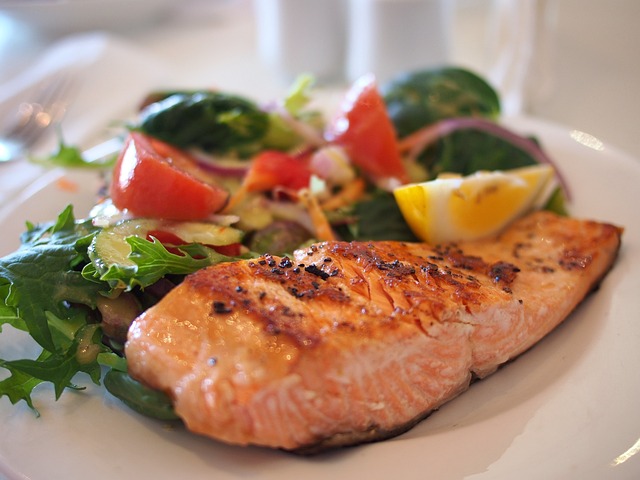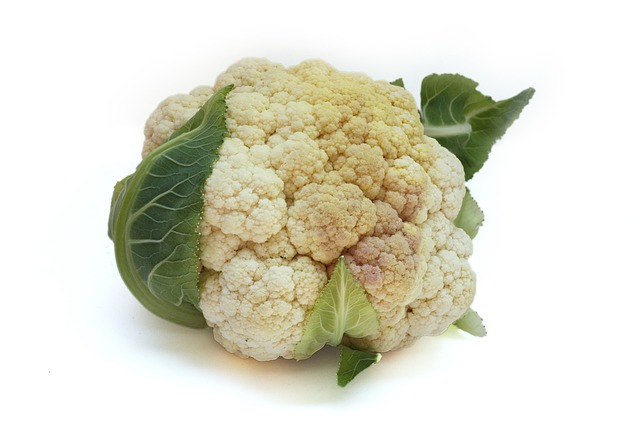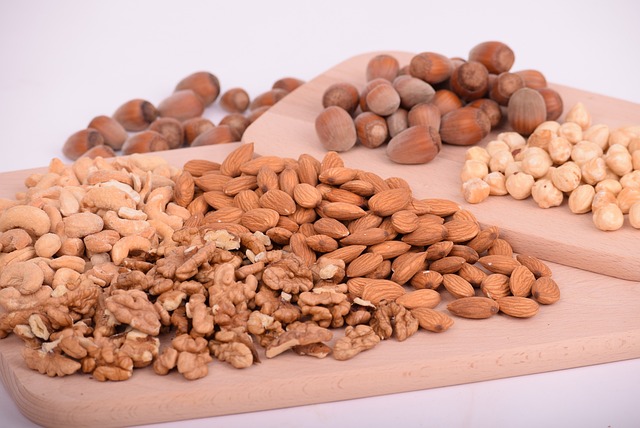All foods provide energy by virtue of giving calories. Yet, there are foods that can help you fight fatigue: fatigue fighting foods. Let’s read on.
Who couldn’t benefit from additional energy? Most of us don’t get enough, and when we’re feeling particularly low, our go-to foods and beverages tend to be heavy in carbohydrates, particularly from sugar and/or caffeine. These items will offer you a momentary boost, but they will usually be followed by a crash.
So, what should you consume to boost your energy levels? You have a lot of healthier options than what you’ll find in most vending machines, and the list probably includes a lot of things you like but didn’t realize might wake you up in the morning or help you get through that mid-afternoon slump.
Nutrients that can Reduce Fatigue
Some nutrients are required to feel healthy and energized. Not because they’re stimulants like caffeine but because your body uses them to generate energy at the molecular level. It is what truly fuels you, rather than simply speeding things up for a short period of time.
Among these energy-producing nutrients are:
- Vitamin B
- Carnitine
- CoQ10 (Coenzyme Q10) (Coenzyme Q10)
- Creatine
- Iron
- Magnesium
- Protein
- Potassium
Carbohydrates and protein must also be considered when seeking fatigue fighters. Carbohydrates, which come from sugary foods and grains, provide rapid energy but quickly deplete your tank.


In contrast, protein and the other nutrients indicated above are better for endurance—long-lasting energy: fatigue fighting foods.
Combining carbs with these nutrients is the best option. That way, you get an instant lift but can remain going for the long term rather than falling back into sleep after burning off the carbs.
Remember how you learned about the fundamental food types in elementary school? Let’s look at each one and see which foods contain high quantities of the vitamins and minerals that give you energy, so you know what the greatest options are, not just for afternoons when you’re fading, but protecting you from fading in the first place.
Animal-Based Protein
Protein can be found in meat, fish, eggs, and dairy products. Yet, different diets have varied combinations of other energy-producing nutrients.
Protein is present in all of the foods in this category. In different proportions, beef, pig, and poultry can also contain CoQ10, iron, carnitine, B vitamins, magnesium, creatine, and potassium.
Magnesium potassium, CoQ10, creatine, and B vitamins are also found in fish and seafood. Other fatigue fighters based on animals include:
- CoQ10 and B vitamins are found in eggs.
- B vitamins and magnesium are found in milk and other dairy products.
If you are pregnant, have heart disease, or are at risk of developing heart disease, see your doctor about the healthiest forms of meat and fish included in your diet. You may need to keep an eye on your diet for mercury pollution in fish or healthy levels of fat from animal sources.
Plant-Based Protein to Help you Reduce Fatigue
If you don’t eat a lot of meat or other animal products, you may need to up your consumption of plant-based proteins to avoid fatigue.
Nuts, seeds, and beans are examples of non-animal protein sources. They are especially vital for vegetarians and vegans, as well as those on other diets that limit the amount of meat they can consume.
Many nuts and seeds, like meats, have nutrients other than protein that might help you feel more energized.
These are some examples:
- Almonds: iron, magnesium, and potassium.
- Amaranth: B vitamins, magnesium, potassium, and protein.
- Cashews: magnesium and potassium.
- Chia Seeds: Magnesium and potassium.
- Peanuts: CoQ10 and magnesium.
- Pistachios: CoQ10, iron, magnesium, and potassium.
- Pumpkin Seeds: Magnesium and potassium.
- Quinoa (a grain-like seed): iron, magnesium, and potassium.
- Sesame seeds: CoQ10, iron, magnesium, and potassium.
- Walnuts: iron, magnesium, and potassium.
Beans, peas, and lentils are all helpful for a quick energy boost since they contain carbs, protein, and other nutrients.
As an example:
- Black Beans: Iron, magnesium, and potassium.
- Edamame: CoQ10 and potassium.
- Soybeans: CoQ10, iron, magnesium, and potassium.
Keep in mind that protein aids endurance and that combining it with carbohydrates can provide both instant and prolonged energy.
Fruits
Fruit is high in vitamins and minerals, including those that assist your body in manufacturing energy. Fresh, whole fruit is one of those foods that can help you reduce fatigue. Consuming fresh fruit is better because it can lose key nutrients as it ages or is dried. (Dried fruits and juices are also substantially richer in sugar than fresh fruits.)
When it comes to fatigue-fighting fruits, some good options include:
- Apples: CoQ10 and magnesium.
- Bananas: magnesium and potassium.
- Blueberries: Magnesium and potassium.
- Dates: Potassium.
- Goji berries: iron and potassium.
- Cantaloupe: magnesium and potassium.
- Lemons: magnesium and potassium.
- Oranges: CoQ10, magnesium, and potassium.
- Raisins: iron, magnesium, and potassium.
- Strawberries: CoQ10, magnesium, and potassium.
Fruits are also abundant in natural sugars (carbohydrates); thus, eating the ones listed above may provide you with both short-term and long-term energy.
Vegetables
Vegetables contain a variety of energy-producing elements, and some even provide a small amount of protein (although not nearly as much as sources like meat, eggs, dairy, nuts, and beans).
Here are a few examples of sources of energy: These are some example of fatigue fighting foods in vegetables.
- Asparagus: magnesium, potassium, and protein.
- Avocados: potassium, magnesium, and protein.
- Broccoli: CoQ10, magnesium, potassium, and protein.
- Carrots: magnesium and potassium.
- Cauliflower: CoQ10, magnesium, and potassium.
- Spinach: iron, magnesium, potassium, and protein.
- Squash: magnesium, potassium, and protein.
- Sweet potatoes: magnesium, potassium, and protein.
- Vegetables, like fruit, contain carbs, but in general, fewer than fruit.
Grains
Grains provide carbohydrates for rapid energy as well as some nutrients for long-term energy. Some good options are:
- Brown rice: iron, magnesium, potassium, and protein.
- Oatmeal: iron, magnesium, potassium, and protein.
- Whole wheat: iron, magnesium, potassium, and protein.
- White rice: iron, magnesium, potassium, and protein.
Several breakfast bowls of cereal contain these grains as well as vitamins and minerals, making them effective sources of fatigue fighters.
Substitutes for Milk
Many milk replacements, either naturally or through fortification, contain several energy-producing elements.
Some beverages, however, may be less compared to their fundamental constituents than you assume. This is due to components being lost during processing or to the addition of water or other additives.
Here’s how some of them compare:
- Almond milk: potassium but only a little iron, magnesium, and protein.
- Milk made from rice: B vitamins and protein in small amounts
- Soy milk: moderate amounts of riboflavin (a B vitamin), magnesium, and protein, as well as high amounts of potassium.
The precise amounts of these nutrients vary depending on the brand and recipe, and some may be fortified and hence supply more than others. Reading the labels is the greatest method to know exactly what you’re getting.
A Word About Caffeine
Caffeine provides instant energy, but it is a stimulant, which means that it speeds up your body’s processes rather than sustaining them. It’s not necessarily a negative thing; in fact, both coffee and tea offer some health benefits.
Caffeine, on the other hand, can cause some issues. You’re probably aware that coffee might make you jittery and interfere with your sleep, especially if you have a lot of it or eat it late in the day.
Furthermore, it might be especially harmful to persons suffering from illnesses characterized by reduced energy generation, such as fibromyalgia and chronic fatigue syndrome. Caffeine and other stimulants, according to some specialists on these conditions, are “checks your body can’t cash” because they create false energy and then leave the body even more tired than usual.
If you have a disease that causes you to be tired all the time, talk to your doctor about the potential side effects of caffeine and other stimulants.

To Conclude on Fatigue Fighting Foods
Talk to your doctor if you seem to have chronically low energy levels. It could be related to lifestyle factors like high stress or insufficient sleep, but it could also be due to dietary inadequacies or an undiscovered illness. Improving your food choices is beneficial regardless of the reason.
When it comes to food, you’re probably looking for more than simply how much energy it can provide. Obviously, nutritional profiles encompass far more than the vitamins and minerals listed here.
Yet, understanding these foods and what they contain can help you make informed dietary decisions. Eating for greater energy may also help you avoid reaching for harmful snacks or stimulants to get you through the day, which may result in better overall health.

